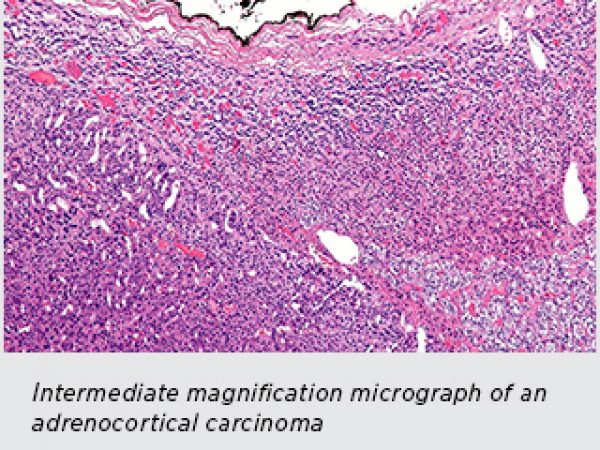Adrenocortical Carcinoma

Adrenocortical carcinoma is a rare disease in which cancer cells form in the outer layer of the adrenal gland. The adrenal gland has two parts. The outer layer is the adrenal cortex, where important hormones are produced that balance the water and salt in the body, help keep blood pressure normal, and help control the body’s use of protein, fat, and carbohydrates.
A tumor of the adrenal cortex may be functioning (makes more hormones than normal) or nonfunctioning (does not make hormones). Most adrenocortical tumors are functioning. Functioning tumors may over produce certain hormones that lead to signs and symptoms of disease such as high blood pressure, muscle weakness, weight gain, and growth of fine hairs on the face, upper back, and arms. Certain genetic conditions may increase the risk of adrenocortical carcinoma, including Li-Fraumeni syndrome, Beckwith-Wiedemann syndrome, and Carney complex.
The other part of the adrenal gland is the center, which is known as the adrenal medulla. Cancer that forms here is called pheochromocytoma.
Adrenocortical Carcinoma Treatment (PDQ®)Source: National Cancer Institute



